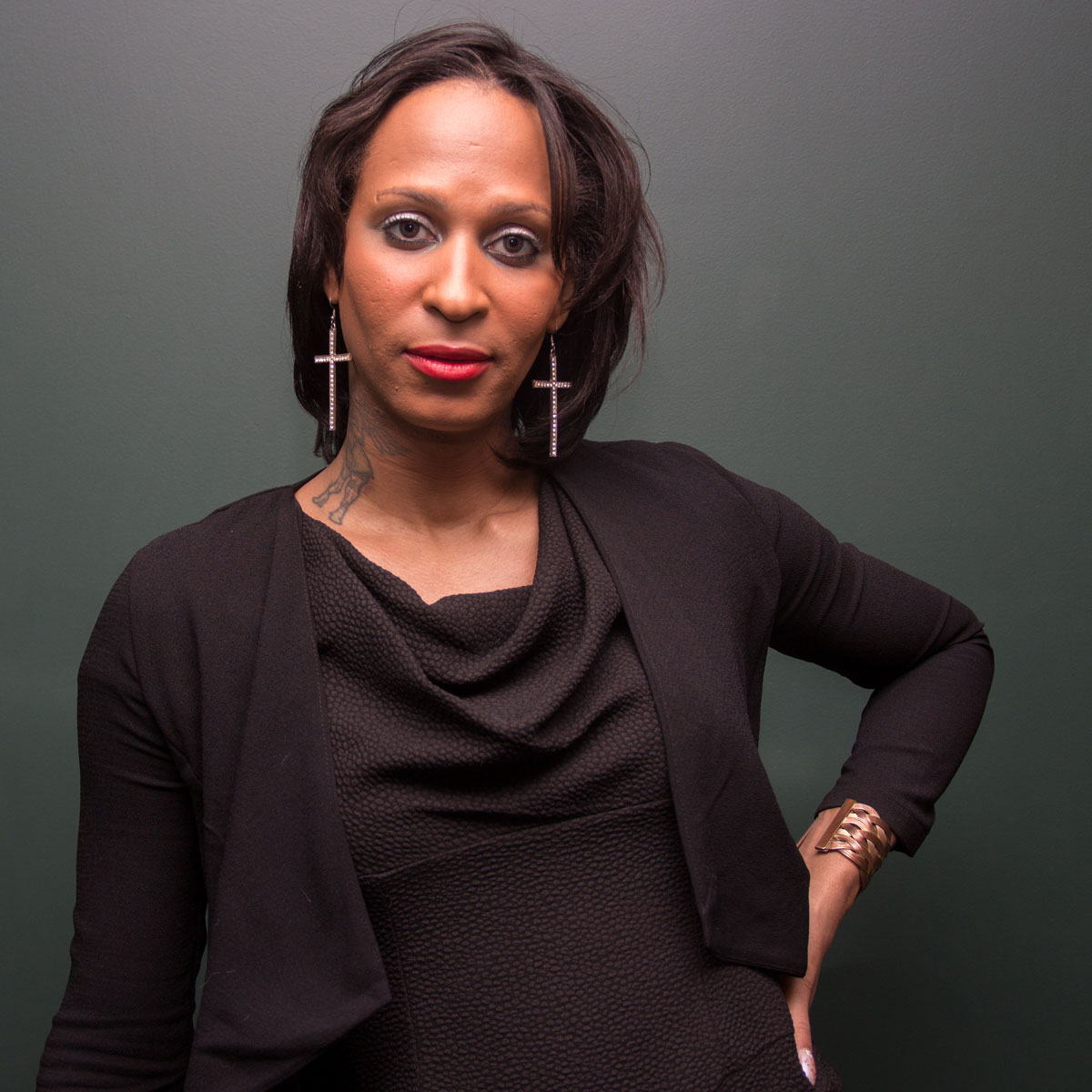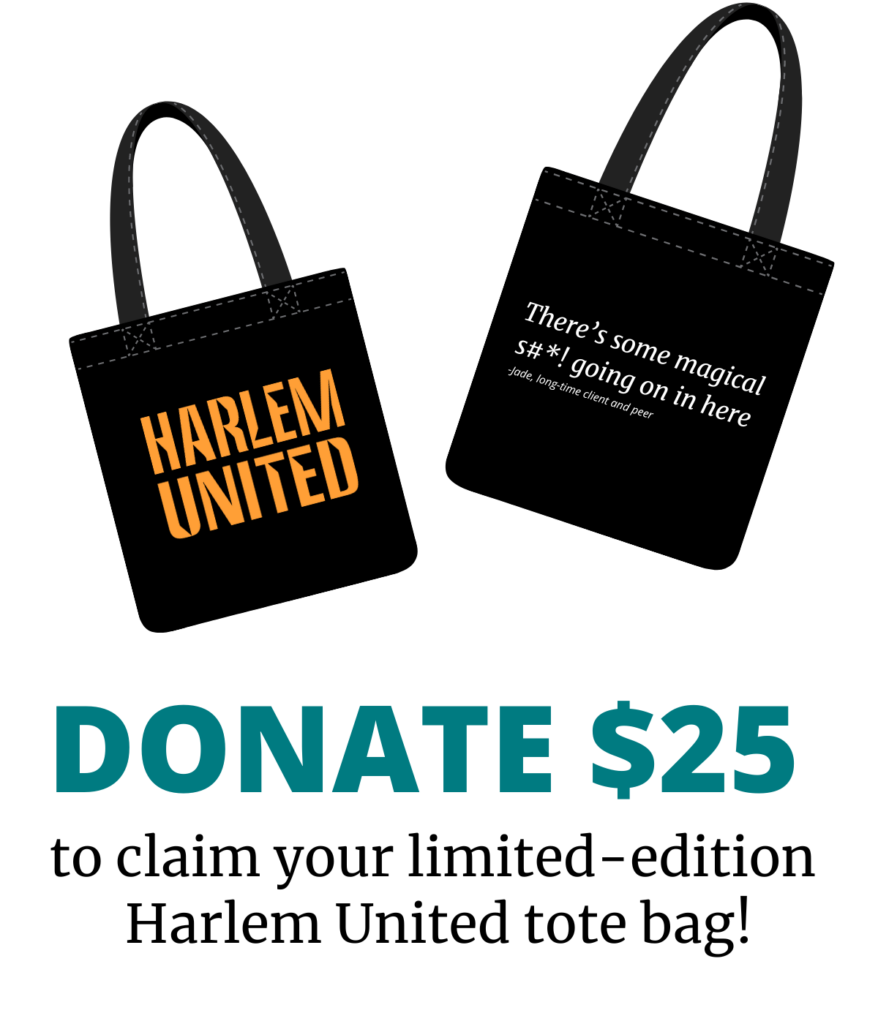As a trans woman, I face a variety of issues daily. The most common is getting people to recognize that I am a lady and not a man. Some people feel that because I was born a man, I am a man. In fact, they will argue with me to the point that I feel nothing I say will change their mind. This is a dangerous way of thinking because it often leads to disrespect and discrimination, like being told what bathroom I am allowed to use.
When I was asked to facilitate a group of clients in Harlem United’s advocacy program to watch the documentary, Gender Revolution: A Journey with Katie Couric, immediately I felt the pressure. Not to be a good facilitator—I feel comfortable with that—but to change someone’s mind, to change their way of thinking, whether about trans rights as a whole or just helping them understand the importance of using correct pronouns and language for me: “she,” “her,” or “Ms.” instead of “he,” “him,” or “sir.”
My motto is to leave no one behind. Educate a mind to change a heart.
When I walked into the room where Gender Revolution was being screened, I saw some familiar faces and many I didn’t know. One client, a man I recognized and who caught my focus, is a Muslim who is very strict in his beliefs and religious views. However, when I arrived we greeted each other at the door, which he held open for me. Whether he knew it or not, I felt this was a sign of his acceptance of my gender. It’s the little things that matter, like holding a door open for a woman as she passes, that specifically makes a trans woman’s experience less fearful. It also communicated to me that he accepted my life decisions.
I introduced myself to the group and before starting the documentary I asked a few questions, a pre-test to see what these fellow clients understood, didn’t know, or questioned. I even asked them a question about when they were first being formed in the womb. I asked, “Did you know that all fetuses, even those who are male, have female characteristics until testosterone makes them develop male characteristics?” A look of disgust filled the men’s faces across the room. The strength and insistence of their beliefs was strong: there is just “man” or “woman” and nothing in between. Then we started the documentary.
The room was silent as everyone watched. I heard many grunts and moans, but not the good kind. I heard people sucking air through their teeth. Some even left the room. One woman had an innocent look of confusion on her face, as she said during the documentary, “I just don’t understand this!”
Even just the terms used by people of various genders and gender expressions featured in Gender Revolution were a bit much for people to bite off and chew. It was amazing for me to see the comfort zone of people’s minds not allowing them to understand the fact that there are individuals who live differently than they do.
That confusion led to anger for some, soon followed by dismissive remarks of, “whatever!” At one point, when we took a break from the screening due to a technical issue, I got flustered after I asked the question, “How can we make transgender people feel safe?” One man refused to answer the question. He said, “I would rather not answer, than answer and be ignorant.”
I was not angry. I was just confused. I do not understand a society of non-acceptance, yet I have lived in this society my whole life.
We ended the screening mid-way through the documentary and agreed to return the same time the following week to finish it. I felt drained. I felt empty. Hopeless, I felt that my femininity was challenged every time I faced society.
The following week, before we watched the remainder of Gender Revolution, I said to myself, “Oh boy. Here we go again!”
As I entered the room, I saw lots of familiar faces, even allies, perhaps. This time, when I facilitated discussion before starting the documentary, some clients even wanted to know how they could do their part to create a safer atmosphere for the trans community.
We started the documentary, and the confused woman was back. She still didn’t understand completely what she was seeing. But, this time she seemed eager to learn. There was also an African American, urban, young man watching, who also started to understand more what it means to be trans.
The language used and explained in Gender Revolution helps people understand the differences in and variations of the trans experience. For example, during a scene where a little boy tells his parents that he is a girl. The room began to mutter, calling her “he.” Then, a spontaneous debate broke out. “No, that is a she,” one lady said, “and her story so touches me!”
Compared to the previous week, during the screening of the second half of Gender Revolution our clients were very pleasant, fun, outgoing, and courageous. I look forward to there being a permanent “gender issues” curriculum in Harlem United’s client advocacy program, because it is very much needed.
Yonce Jones is a Peer Empowerment Leader in Harlem United’s client advocacy program. You can learn more about Yonce and her fellow Peer Empowerment Leaders here.

